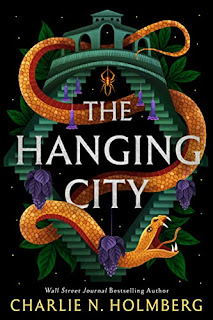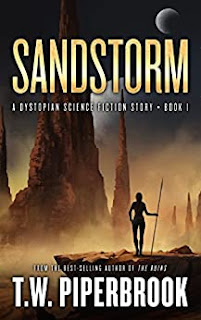Review of "The bird king" by American Muslim writer G. Willow Wilson - A mix of history, mythology and fantasy,

Fatima is the concubine of the sultan of Ibero-Arab Granada. The Muslims conquered what is now Spain in the 8th century but in the 15th century the combined Christian kingdoms are on the verge of even conquering the last Muslim town on the peninsula. This ere is called the Reconquista (re- conquering). It is just before Columbus will go and discover America. It is also the time that the Catholic church was very harsh against everybody who seemed not to believe mainstream Catholicism and its secret police and judges, the Inquisition, persecuted those people.
Fatima is 18 years old and born and raised in the harem of the palace. A very silent harem as it contains only the Sultan's family and her because due to the siege everyone else is evacuated to /fled to Morocco. Her best friend since early childhood is Hassan the cartographer. They are allowed to fraternise because everyone knows he is a homosexual (and pretends not to know). When a Spanish emissary enters the harem lonely Fatima longs to be her friend
At the beginning Fatima is still a very naive girl. She has never left the palace and knows nothing about the world behind the walls. One can notice it because she does not realise that her mistress, the sultan-mother, does love her. The sultan is a very handsome man who is kind to her (she is even allowed to call him by his given name and not his title during orgasm - oh my) but who only sees her as an object to have sex with. When he takes her to his bed when she is 15 she blurts out she loves him and he just laughs. However during the last days of the siege there grows a deeper connection between them. Fatima realises that she could have loved him very much if he only had allowed her the freedom to initiate or refuse her affection instead of deciding when he wanted it. When she then embraces him in reflex, for the first time he allows her to take the lead and they start to make love. Only to be interrupted by a messenger.
When Fatima realises her friend Hassan is in mortal danger she runs off to save him and they have to leave all that is familiar behind.
Like I said there are a lot of mythical elements in this novel what makes it a fantasy story. Some I did recognise with my Christian background like the splinter in the eye and the Leviathan and I know what Arab jinns are supposed to be but that was it. A lot of the other things were a complete mystery to me and I only found out about their origin when I googled myself silly after I finished the book and I wondered if there was more to it then I thought. I did not know that the story Fatima and Hassan tell each other "the conference of the birds" is a Persian poem in which all kind of birds who represent human flaws go to look for the king of the birds. Nor did I know that the legend of the Christian bishops fleeing before the Muslim invaders to the island Antillia was a story told in the 15th century and maybe found its origin in pre-Columbian discoveries of America. I am sure I still missed other references. Like the bones and the boot? That what is regarded Satan in myths?
Exactly that fact that some legends are a bit familiar made me wonder while I was reading the novel what it was really about. Hence the Google session afterwards. Those who have read Umberto Eco "The Island of the Day Before" might recognise that feeling. I also wondered if like the play by Jean-Paul Sartre the people were really in hell or a kind of afterlife.
Like Umberto Eco books some parts of this novel is a bit slow. But the prose is beautiful. This rang a bell with me as an immigration lawyer: "The real struggle on this earth is not between those who want peace and those who want war. It's between those who want peace and those who want justice. If justice is what you want, then you may often be right, but you will rarely be happy."
I would recommend the writer to write a short introduction to the book explaining the historical setting. I can imagine some of the American readers not even knowing where Spain is let alone Granada (saw a reviewer here write Morocco). And explain that the Inquisition is not the Reconquista (another thing I see here mixed by the reviewers) And maybe a kind of Afterword (what is the proper word in English for that?) explaining the origins of the mythical elements in the book. Because I see a lot of the reviewers on NetGalley get lost and also underestimate the complexity of the story.
The novel will be published in March 2019. I received an ARC from Netgalley providing I would write an honest review.





Comments
Post a Comment